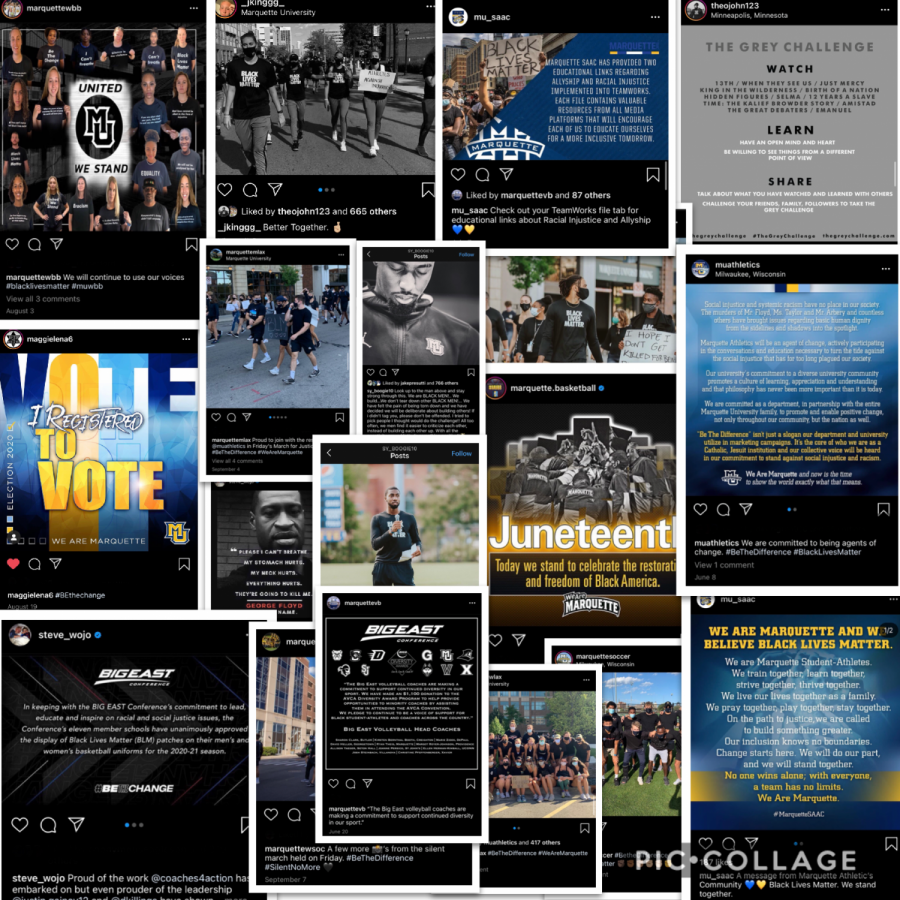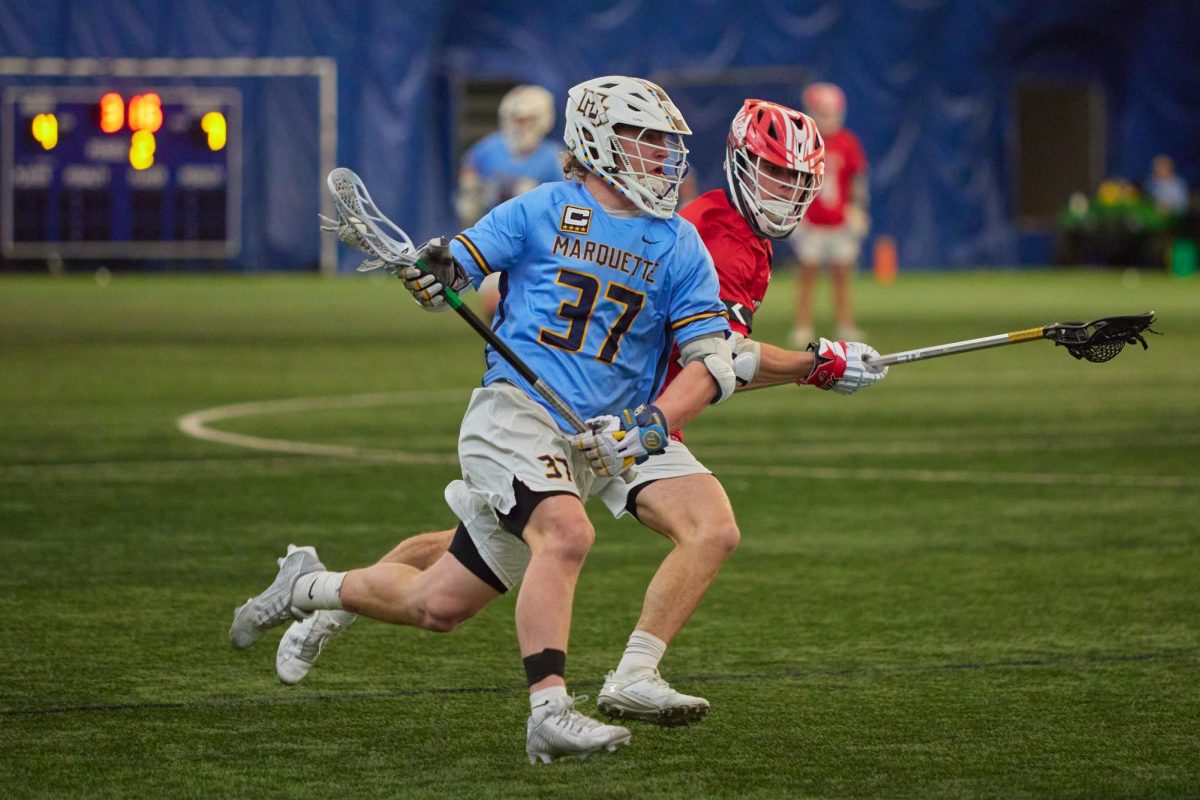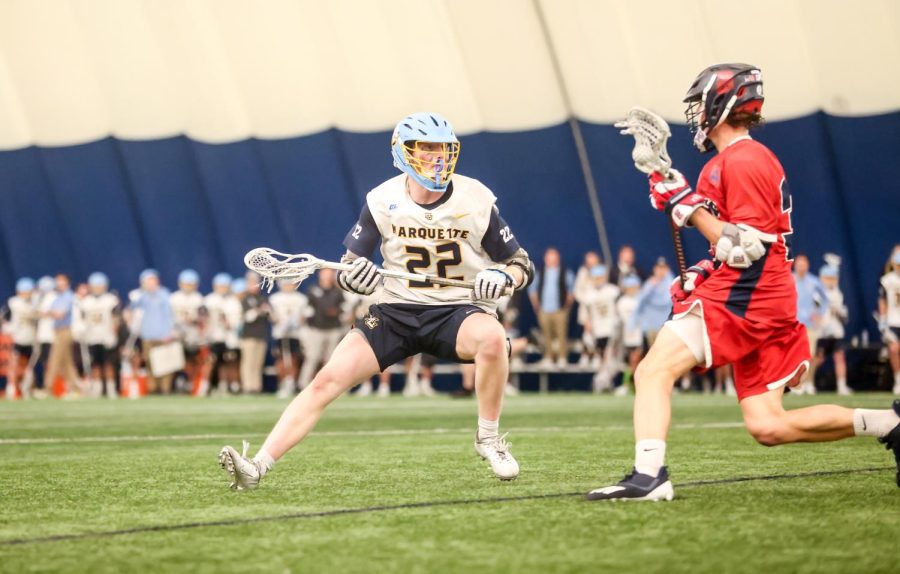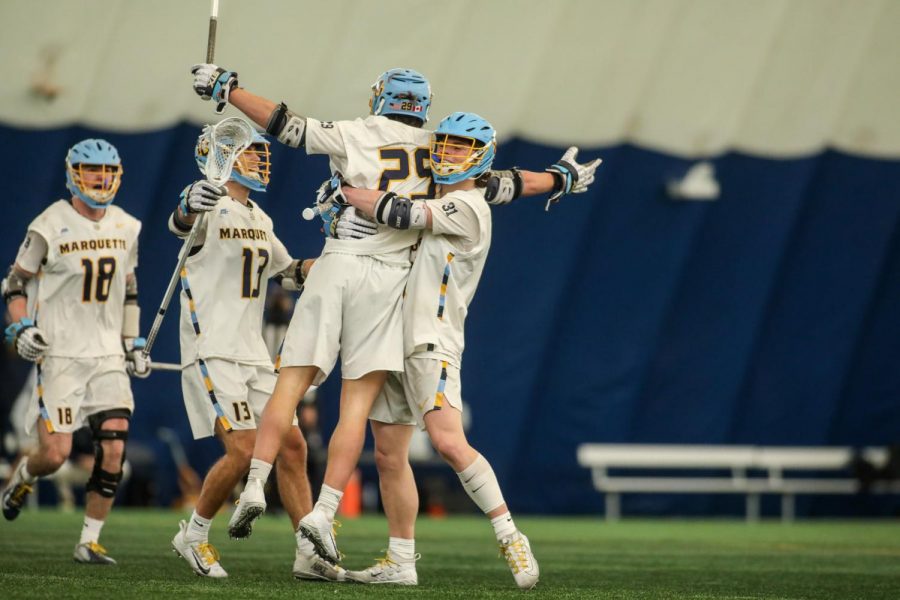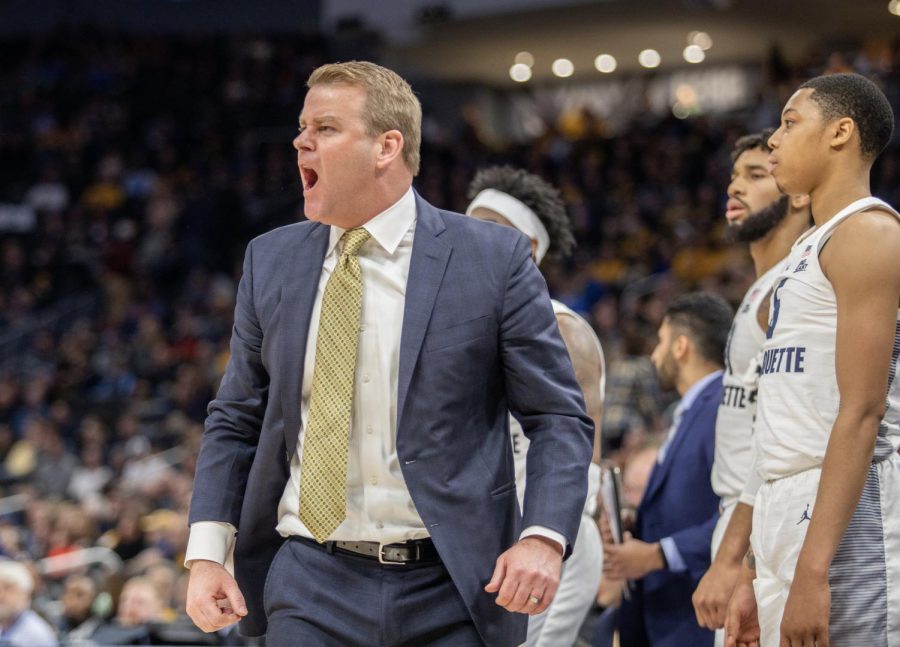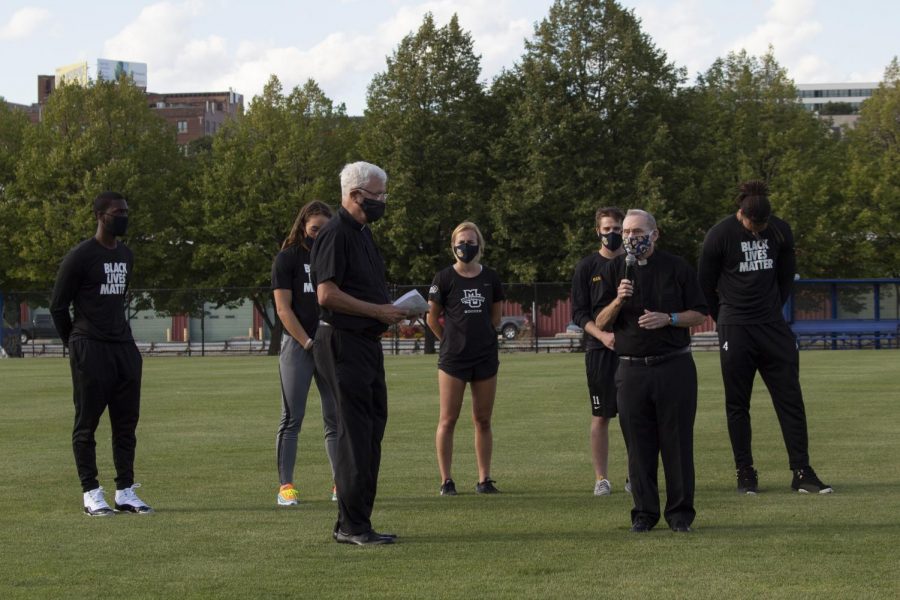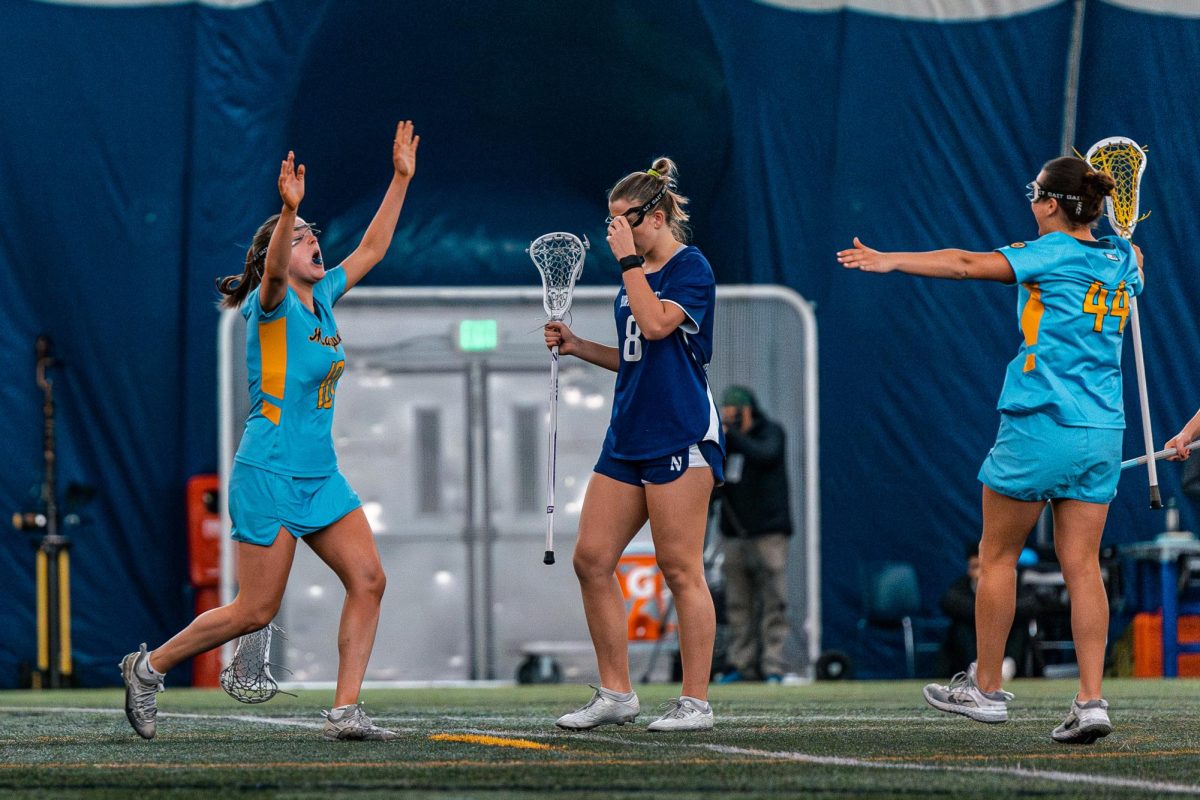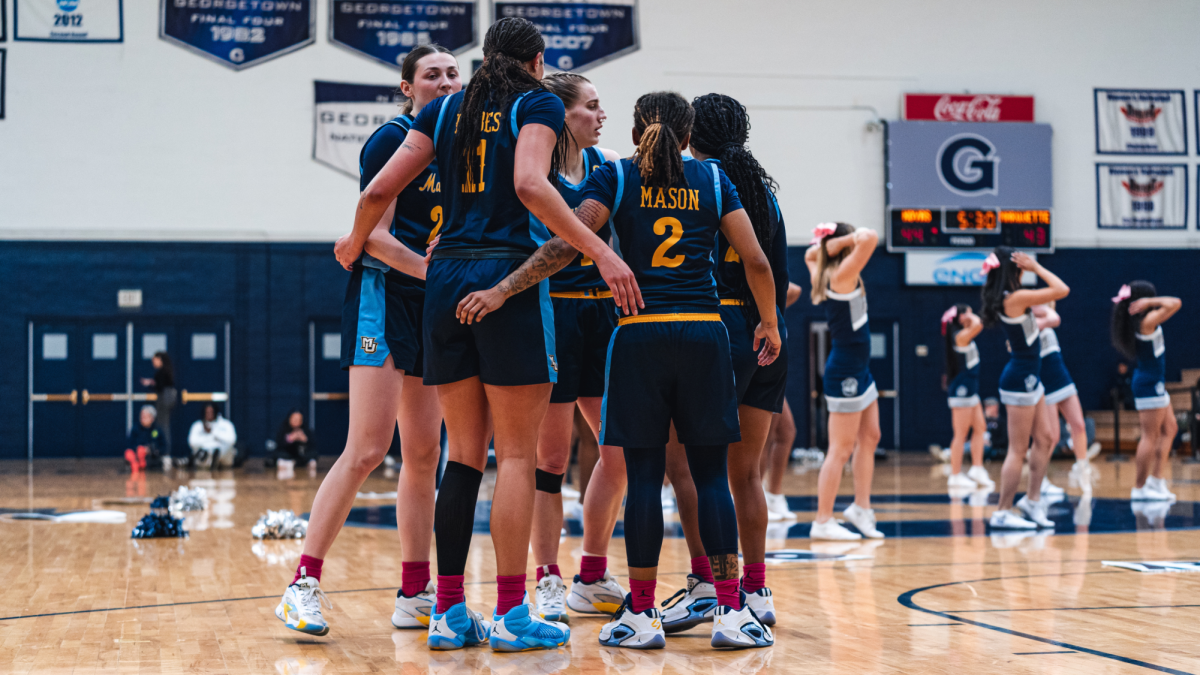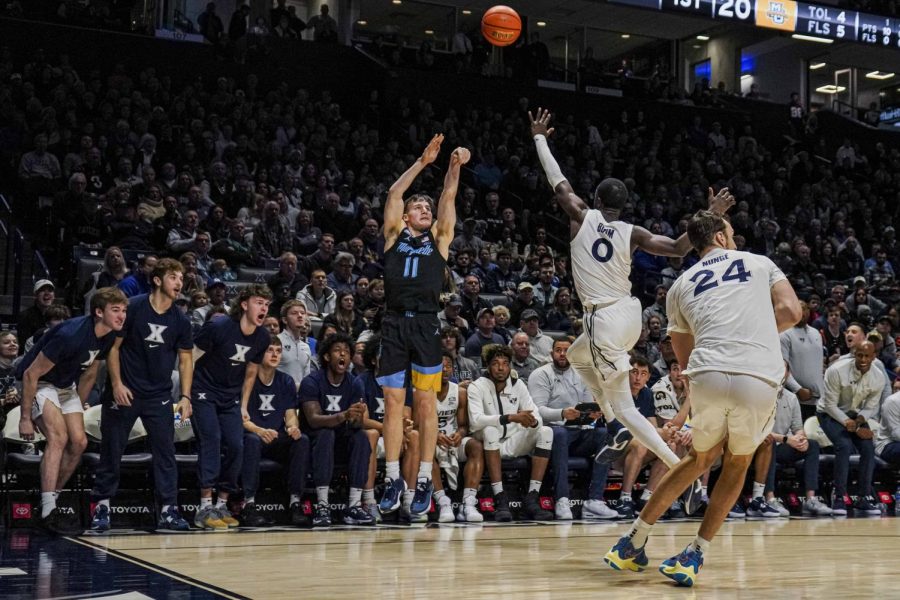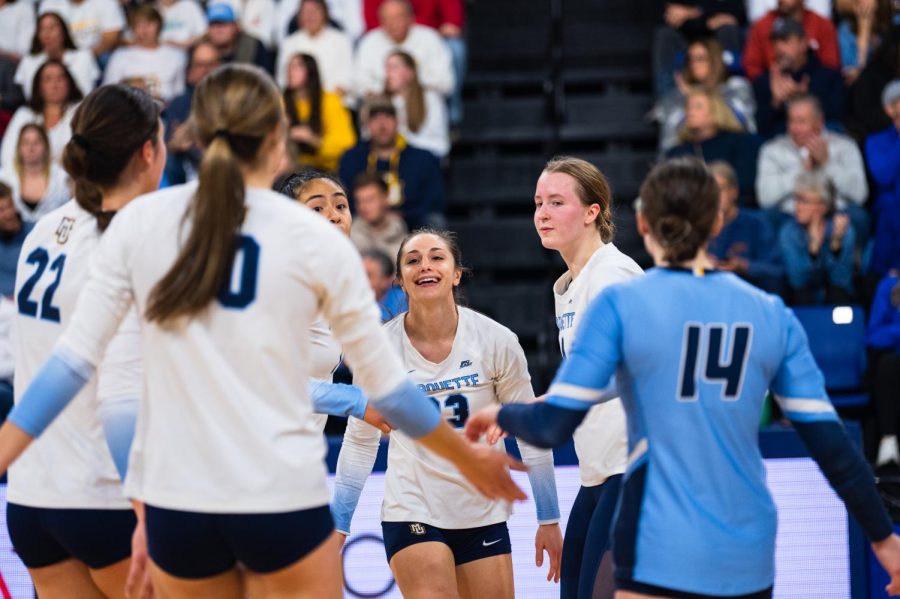Colin Kaepernick kneeling for the national anthem. The Milwaukee Bucks boycotting Game 5 of their playoff series against the Orlando Magic Aug. 26 following the Aug. 23 Jacob Blake shooting. The WNBA, MLB, NHL and other professional leagues canceling games and tournaments to stand in solidarity with the NBA. The BIG EAST adding Black Lives Matter patches to basketball jerseys. Marquette’s athletes hosting a one-mile march for social justice. These are just a few ways athletics can be used as a platform to incite change.
“It’s been extremely empowering to watch different pro leagues across the country, whether it’s the NBA, WNBA, (or) the NFL come together to bring about change,” women’s basketball head coach Megan Duffy said. “We all have a responsibility, as the younger generation, in some form, to learn how to use our voices in a way that’s going to bring people together. … That’s the greatest example of finding peace and unity.”
From professional athletes like LeBron James speaking out about racial injustices to Marquette athletes posting on social media, it is clear athletes are no different than anyone else when it comes to advocating for what they believe in.
“Athletes are people and when there are human rights issues out there that speak to their heart, they should be able to stand for what they believe in,” men’s basketball head coach Steve Wojciechowski said. “They want to be agents of change for the better. The one difference is that our guys have a bigger platform. … They can give a voice to people that maybe don’t have the platform that they have.”
Men’s lacrosse head coach Andrew Stimmel commended Marquette athletes for the way they have utilized their voices.
“Our athletes have done an incredible job using their platform to just be able to make their voice heard on how they feel about these social justice issues,” Stimmel said. “I’ve been inspired by our guys and their leadership, and really by all of our student-athletes to stand up when they witness an injustice.”
Though athletes are the ones expected to perform on the field or court, the number on their jersey is not all they want to be recognized for.
“As an athlete, we don’t want to be just known as an athlete,” men’s basketball sophomore guard Symir Torrence said. “We want to be known for other things, such as (raising awareness about social injustices), so that’s why we’re using our platform to speak up.”
Given athletes’ standing and following in the community, they are often looked at as role models.
“Athletes get put in this leadership role whether we like it or not,” women’s basketball redshirt senior forward Lauren Van Kleunen said. “You want to do as much as you can, on and off the court. … We know now at the college level we can do the same thing (as the pros) and most likely have the same impact, if not more.”
Torrence said the impact starts from the younger generations. Since Marquette athletes can reach younger followers, they can show the power of voicing their opinions.
“We do have privilege and with that privilege comes power to speak up for things that aren’t OK,” women’s volleyball senior middle blocker Elizabeth Orf said. “Four or five years ago, if you supported those (issues), people were more likely to frown upon you. … Now supporting (the) Black Lives Matter movement and kneeling for the anthem are more acceptable.”
Due to collegiate athletes becoming more vocal, there is a possibility that boycotting games — like how the Bucks refused to come out of the locker room for Game 5 against the Magic following the Blake shooting — could funnel down to the NCAA. Duffy said she cannot predict the future, Stimmel said only time will tell if boycotting trickles down to the collegiate level and Wojciechowski believes it is in the realm of possibility.
“We all lived through the Jacob Blake incident in Kenosha and it hit particularly close to home for everybody in the state of Wisconsin,” Wojciechowski said. “Whether you’re a professional athlete or a college athlete, it’s no different. It impacts you. … If an incident happens, you could see (boycotting) at the college level.”
Instigating change should not only come from having to boycott college games, though.
“With all the chaos that 2020’s brought us, I hope that’s not needed,” men’s basketball senior forward Theo John said. “But I know a large group of us are ready to do what we see necessary to, if we need to, spark another progressive movement.”
However, fighting social injustices is greater than sports.
“At times basketball seems so big, but it’s a small part of things going on in the real world,” Van Kleunen said. “If (boycotting) is what we need to do to continue to make change, then that’s what we’re going to do.”
Part of that change includes educating people about these injustices. The Student-Athlete Advisory Committee has been doing a lot to inform the athletic department about social justice and equity, which includes creating educational initiatives.
“(We want to make) sure that our student-athletes feel supported and respected by not only our peers and other student-athletes, but also by our staff,” women’s soccer senior forward Maggie Lena said.
Nowadays, social media is extremely powerful. Duffy said the conversations among her team include how to use social media in a positive light. She said student-athletes’ use of social media always used to be how student-athletes and coaches can brand themselves and the university, but now it’s more about understanding how your opinions help or hurt a situation.
“It’s always been athletes seeing (speaking out) as a duty of theirs because they do have the platform and they do have the following,” women’s basketball sophomore guard Jordan King said. “Especially with professional athletes and the following that they have, it’s been great for them to use their voice via social media. A lot of us college athletes have been able to follow along in their footsteps.”
Not only have Marquette athletes been active on social media, but Sept. 4 every team stood in unity by walking in the athletes march.
“Our role as student-athletes at Marquette is to try and positively affect change in our circle, whether that’s our family or our fan base,” men’s lacrosse redshirt sophomore midfielder Jordan Schmid said. “It is your role and responsibility to try to push the conversation forward.”
Wojciechowski said the claim some make about sports becoming more political is an overblown concept because in today’s society it is easier to politicize issues. The way he looks at it is that each player has individual life experiences that have created strong internal thoughts and feelings they want to stand up for.
“All the social injustice stuff that’s going on, it’s not necessarily a political issue. It’s a human rights issue,” Schmid said. “We put politics aside and we’re like, ‘This is something bigger than whether you’re a Democrat or Republican.'”
Van Kleunen said she hopes athletes speaking out for injustices and serving as role models will continue in the future.
“One of the greatest quotes is ‘This is not a moment, this is a movement,” Van Kleunen said. “I don’t want this just to end after this year. Especially once I leave, I want to continue to have these conversations, continue to fight for what’s right.”
This story was written by Zoe Comerford. She can be reached at isabel.comerford@marquette.edu or on Twitter @zoe_comerford.

